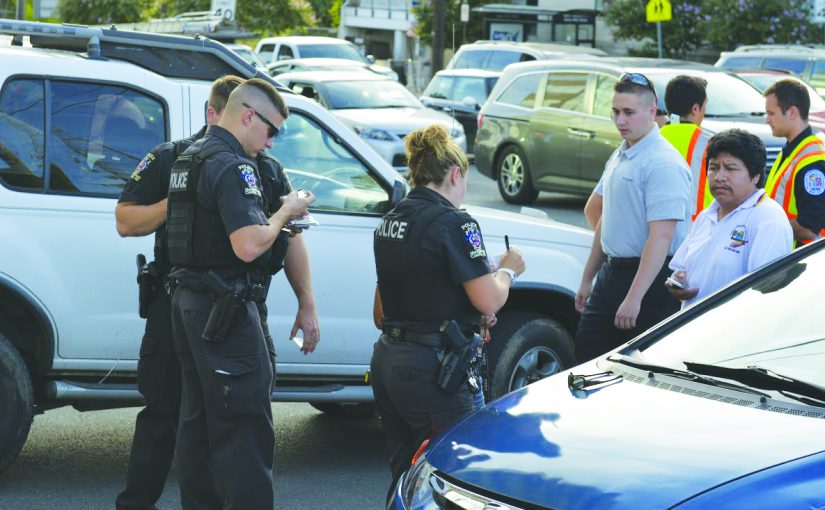The relationship between law enforcement and the communities they serve is a complex one, often fraught with tension. While many people view police officers as protectors and guardians, others harbor deep-seated fear towards them. This fear, unfortunately, is not unfounded. It stems from a history of systemic injustices that have eroded trust and created a climate of suspicion.
This article aims to delve into the reasons behind why are people afraid of cops, exploring the historical and societal factors that contribute to this pervasive fear. We will examine issues like racial profiling, police brutality, lack of accountability, and the disproportionate impact on marginalized communities. By understanding these root causes, we can begin to bridge the gap between law enforcement and the public, fostering a more equitable and just society.
Systemic Injustices
Systemic injustices are deeply embedded within our societal structures, perpetuating inequalities across various aspects of life, including interactions with law enforcement. These injustices often stem from historical biases and discriminatory policies that have marginalized certain groups and created an uneven playing field. For example, the legacy of slavery and segregation has resulted in persistent racial disparities in wealth, education, and access to resources, which can influence how individuals are perceived and treated by law enforcement.
Furthermore, systemic racism within institutions like the criminal justice system contributes to the over-policing of marginalized communities. This means that people of color are more likely to be stopped, searched, arrested, and subjected to harsher penalties for the same offenses as their white counterparts. These experiences reinforce the perception that the legal system is biased against them, leading to a sense of fear and distrust towards law enforcement.
The impact of systemic injustices extends beyond individual encounters with police. It creates a climate of fear and insecurity within entire communities, where residents feel constantly watched and judged. This can lead to social isolation, decreased civic engagement, and a reluctance to cooperate with authorities, further exacerbating the problem.
Racial Profiling
Racial profiling is a discriminatory practice where law enforcement officers target individuals based solely on their race or ethnicity. This involves making assumptions about a person’s guilt or potential for criminal activity based on their perceived racial characteristics rather than on any evidence of wrongdoing.
The consequences of racial profiling can be devastating. It leads to unnecessary stops, searches, and arrests, often resulting in harassment, humiliation, and physical violence. It also reinforces negative stereotypes and contributes to the perception that law enforcement is biased against certain groups. This erodes trust between communities and police, making it more difficult to address crime effectively.
Racial profiling is a violation of fundamental human rights and has no place in a just society. It is essential for law enforcement agencies to implement policies and training programs that explicitly prohibit racial profiling and promote fair and impartial policing practices.
Police Brutality
Police brutality refers to the excessive and unwarranted use of force by law enforcement officers against individuals. This can range from verbal abuse and intimidation to physical assault, torture, and even death.
The consequences of police brutality are profound and far-reaching. Victims often suffer physical injuries, psychological trauma, and long-term health problems. Moreover, police brutality erodes public trust in law enforcement, fuels social unrest, and perpetuates a cycle of violence. It is crucial to hold officers accountable for their actions and ensure that victims receive justice and support.
Addressing police brutality requires a multi-faceted approach, including comprehensive training programs that emphasize de-escalation techniques, accountability measures such as independent investigations and civilian oversight boards, and systemic reforms aimed at addressing the root causes of police violence.
Lack of Accountability
A lack of accountability within law enforcement agencies contributes significantly to why are people afraid of cops. When officers know they are unlikely to face consequences for their misconduct, it creates a culture of impunity where abuse of power can flourish. This erodes public trust and makes it difficult to build positive relationships between police and the communities they serve.
Several factors contribute to this lack of accountability. Inadequate internal investigations, weak disciplinary procedures, and political influence can all hinder efforts to hold officers responsible for their actions. Furthermore, a culture of silence within law enforcement agencies can discourage whistleblowers from coming forward with information about misconduct.
Marginalized Communities
Marginalized communities, including people of color, LGBTQ+ individuals, and those experiencing homelessness, are disproportionately affected by why are people afraid of cops. They face higher rates of police harassment, profiling, and violence due to systemic biases and discriminatory practices.
These experiences create a cycle of fear and mistrust that can have devastating consequences for individuals and communities. It can lead to social isolation, decreased access to resources, and increased vulnerability to further harm. Addressing this issue requires a commitment to dismantling systemic racism and promoting equity within law enforcement agencies.
Conclusion
The fear many people harbor towards police is a complex and deeply rooted issue stemming from historical injustices, systemic biases, and a lack of accountability. Racial profiling, police brutality, and the disproportionate impact on marginalized communities all contribute to this pervasive sense of distrust.
Addressing why are people afraid of cops requires a multifaceted approach that includes comprehensive police reform, community engagement, and a commitment to dismantling systemic racism. By working together, we can create a more just and equitable society where everyone feels safe and respected by law enforcement.



